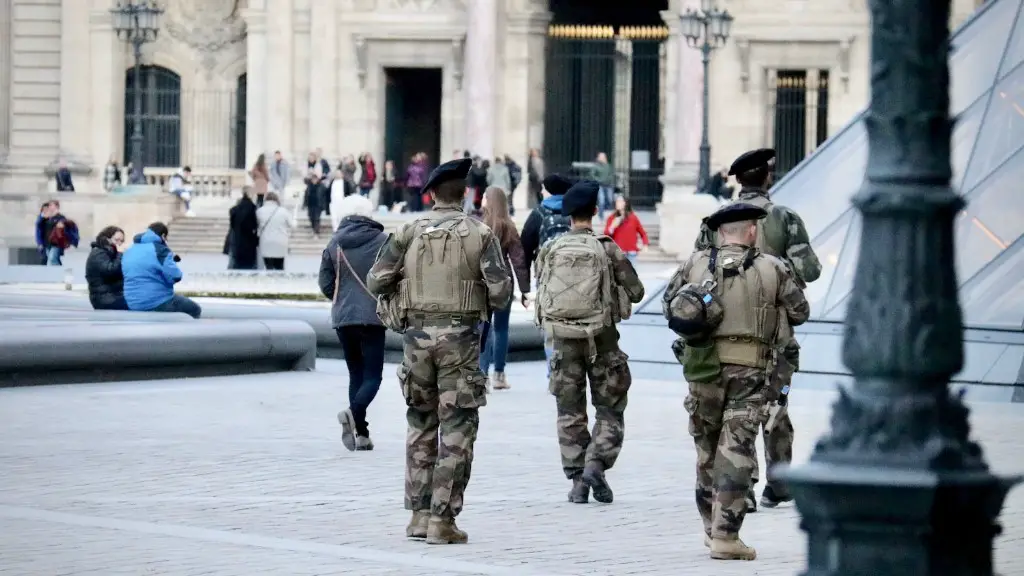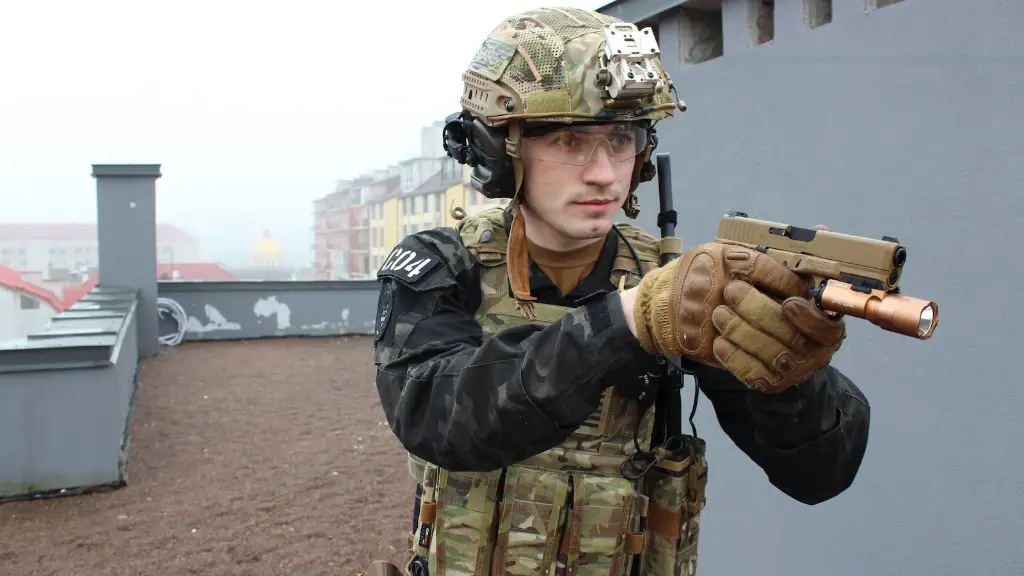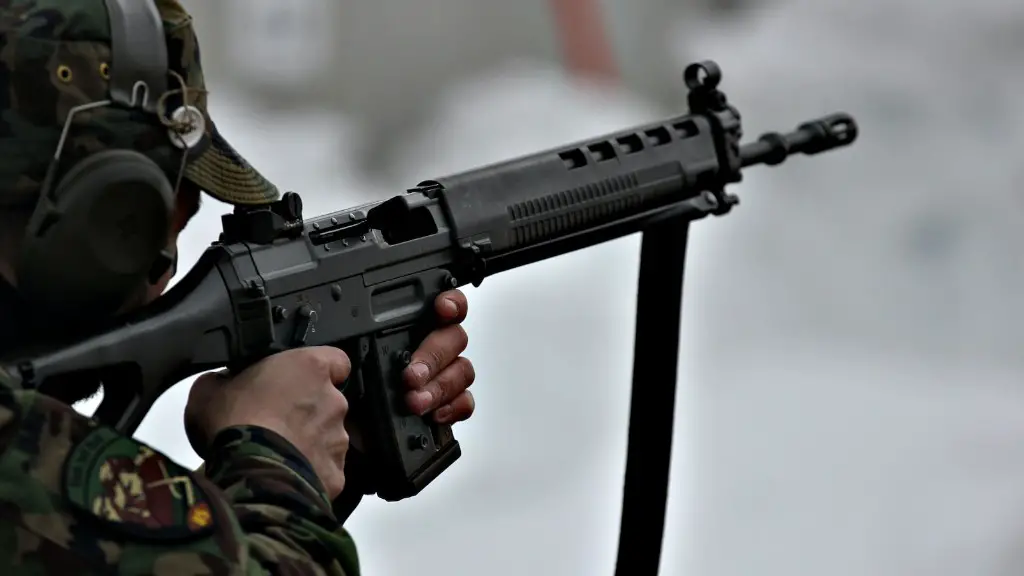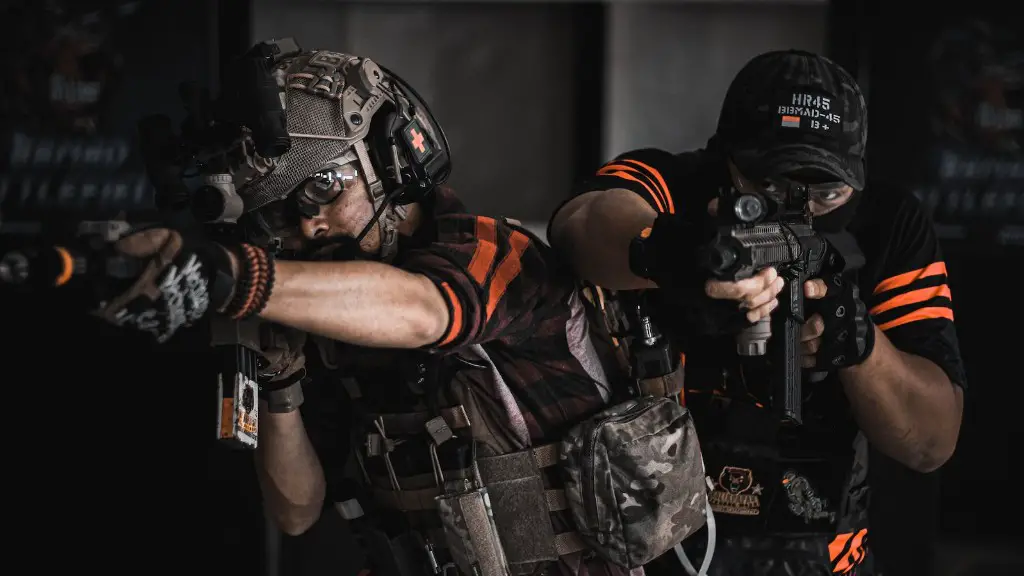Background Information
China is one of the world’s leading military powers, possessing the largest standing army in the world with traditionally strong arms production and military technology capabilities. Venezuelan President Nicolas Maduro has publicly claimed that China is sending forces to Venezuela. This has sparked questions about what China’s involvement in Venezuela is, and whether or not it is militaristic in nature. In addition to being one of the biggest economic, political, and military powers in the world, China is actively engaging in numerous foreign initiatives abroad to increase its influence in global affairs.
The Chinese Investment in Venezuela
In recent years, Venezuela has drawn large investments and economic resources from China. The Chinese government has extended loans to Venezuela for various large-scale projects and infrastructure investments. According to the Organisation of American States, as of 2019, China is the largest trade partner of Venezuela, alongside Brazil, with China having invested over $62 billion since 2008. In March 2020, Venezuela reached out to China regarding an additional $5 billion loan to help them fill their budget deficit. This loan will be backed by Venezuelan gold bars. Reports have also suggested that China is seeking to take advantage of Venezuela’s current political instability to gain access to oil fields, offering loans to the government in exchange for favorable extractive rights.
The Chinese Military Presence in Venezuela
Nicolas Maduro has publicly announced that China has sent military forces to Venezuela. He claims that the forces have been sent to help carry out economic and cultural exchanges between the two nations, as well as to defend Venezuelan sovereignty. In 2019, China’s Defence Ministry released a statement addressing the claims, acknowledging that China has been bolstering its military and security ties with Venezuela and has been sending “small teams” of military personnel to Venezuela for “exchanges and joint operations.” There have also been reports of increased Chinese military equipment in the country, including Chinese drones in use.
Expert Perspectives
A number of security analysts from the United States and Europe have cast doubts on Maduro’s claims, arguing they are part of an effort to gain more leverage on the world stage. Experts have stated that the military forces sent to Venezuela by China are more likely to be civilian professionals in areas such as engineering and medicine, rather than troops. Furthermore, they express concern that the Chinese government is taking advantage of the Venezuelan situation by propping up the Maduro regime. According to some analysts, there is a risk that, by gaining a stronghold in Venezuela, China could further challenge US hegemony in the region.
Analysis of the Situation
The ongoing turmoil in Venezuela has created an opportunity for China to increase its influence in the country, both economically and militarily. While it is difficult to determine whether or not China has indeed sent troops to Venezuela, there is evidence to suggest that the Chinese government is increasingly engaged in the country. With China being one of the largest creditors of Venezuela, the Chinese government appears to be in a position of leverage, creating a worrying scenario for the international community.
The Impact of Chinese Aid
At first glance, the Chinese aid programme for Venezuela may seem beneficial for the country, as it could help alleviate financial constraints and promote economic and social development. However, some experts argue that this could be a short-term gain as the loan terms are very strict and could leave the Venezuelan government in an even more precarious financial situation in the future. This could potentially hinder the country’s ability to pay down its debts and attract foreign investment in the long run, further destabilizing the nation.
The US Response to the Chinese Presence in Venezuela
The US government has largely been critical of China’s presence in Venezuela, claiming that the Chinese government is using its influence to prop up the authoritarian Maduro regime under the guise of “economic and cultural exchanges.” US Secretary of State Mike Pompeo has warned China to end its activities in the country and to cut off support for the Venezuelan government to help promote an end to the political crisis. The US has also imposed harsh economic sanctions on Venezuela, further tightening the screws on the Maduro government and hampering its ability to obtain much needed funding from abroad.
Implications for Regional Security
China’s increased involvement in Venezuela is a worrying development, as it could lead to an intensification of US-Chinese rivalry in the region. This could potentially increase the risk of military conflict, setting the stage for a potentially dangerous proxy war between the two nations. Furthermore, increased Chinese influence could lead to the further militarization of the region, as well as the presence of more Chinese military equipment and personnel in Venezuela.
The Impact on Venezuela’s Economy
The influx of Chinese money into Venezuela has provided a much needed financial lifeline for the Maduro government and has helped them to tap into Chinese technological capabilities. While this could offer some economic benefits in the long run, many experts also argue that it is part of China’s long-term strategy to increase its foothold in the region. This could lead to further economic entrenchment of the Chinese in the region, potentially creating a situation where the country’s economy is dependent on the continued flow of Chinese funds.
The Effect on US-Venezuelan Relations
The US government has been highly critical of China’s increasing presence in Venezuela, with Secretary Pompeo accusing the Chinese government of propping up the Maduro regime. The US has also implemented harsh sanctions against Venezuela, which could further increase tensions between the two countries. Additionally, some analysts have argued that the presence of Chinese forces in Venezuela could lead to an even further chill in US-Venezuelan relations, potentially weakening their political and economic ties.
The International Community’s Response
The international community has been largely silent about the situation in Venezuela, with some countries expressing support for the Maduro government and others offering criticism. In addition, various international organisations have called for a peaceful resolution to the crisis, with the International Monetary Fund taking a particularly active role in attempting to help manage the situation. Despite this, most countries have largely stayed out of the conflict and have avoided taking any concrete action.
The Chinese Government’s Motivations
It is difficult to determine the Chinese government’s true motivations for increased involvement in Venezuela. On one hand, the government has stated that the forces sent to Venezuela are meant to promote exchanges and joint operations between the two countries. However, others argue that this is part of a larger plan to increase China’s influence in the region and challenge US hegemony. This suggests that the Chinese government is attempting to use its financial and military power to gain leverage in regional affairs.
The Venezuelan People’s Response
The majority of Venezuelans have largely been critical of the Chinese presence in their country. Many have expressed alarm at the potential for Chinese influence over their government and economy, as well as their concern about the implications for regional security. Others have also voiced their worry about the potential long-term economic consequences of the Chinese aid programme, as well as their fears that it could lead to further entrenchment of the authoritarian Maduro regime.



